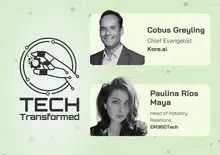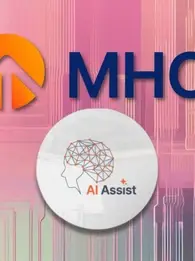
If business was easy, everyone would be doing it. Running a business is a complex and sometimes difficult thing to do.
The more experience one has, the more they can make it look easy. But no matter how experienced you are, and how much you can “routinise” your workload by yourself, a robot and software could probably do those things better.
That might sound disheartening for some, but for others, it provides an opportunity to become more productive, and in ways that are more creative and rewarding.
Here, we speak to Manish Sharma, senior managing director and group operating officer, Accenture Operations, about how the company itself uses automation to streamline its processes.
EM360: How does Accenture Operations approaches intelligent automation technology?
 Manish Sharma, Accenture Operations
Manish Sharma, Accenture Operations
Manish Sharma: For years, Accenture has invested in digitizing, automating and transforming the delivery of business process and infrastructure services to drive new levels of productivity, compliance, quality and user experience while freeing up talent to focus on higher-value analysis, decision-making and innovation.
We use a range of technologies to digitize workflow, execute it more quickly and automate its processing. By smartly integrating these technologies into our service delivery, we can eliminate and transform entire processes, creating new business opportunities and dramatically enhanced services.
We’ve embraced automation to help our clients transition to the emerging “As-a-Service Economy,” where value is delivered via on-demand, highly scalable plug-and-play services that impact business outcomes. Automation, combined with cloud, analytics, top talent and ecosystem partnerships have been pivotal to establishing our As-a-Service delivery model.
Accenture’s strategic approach to automation is guided by our belief that it must be business-oriented, people-first and technology-rich. These three principles will help our clients effectively integrate intelligent systems to improve operations and create new growth opportunities.
- Business-oriented: Automation relies on business domain knowledge to comprehend and act. AI solutions need specific business domain expertise to be able to reason and deliver tangible business results.
- People-first: Perhaps paradoxically, automation needs to be people first. Beyond eliminating repetitive tasks, it will enable people to accomplish more with technology through new modes of human and machine collaboration to support humans in complex and creative problem solving.
- Technology-rich: Automation must leverage multiple key technologies to be effective. It is not one tool or one capability, like machine learning. Accenture has an open, agnostic innovation model, which draws the best technology solutions from a broad ecosystem rather than fixing on any specific vendor platform – allowing us to easily integrate capabilities from a variety of vendors, along with our proprietary extensions, to deliver measurable outcomes.
EM360: How is Accenture applying automation within its services?
Manish Sharma: We use automation in the delivery of our offerings and solutions across our 50+ Global Delivery Center locations, for a significant portion of our clients. It is embedded into our delivery framework, driving higher rates of productivity, and operations excellence across our offerings in every industry.
Depending on the kind of work we are doing for each client, we may be using surface level minibots that aggregate data from multiple sources into one screen, or more advanced artificial intelligence systems that use natural language processing and machine learning to sense, comprehend, act and learn.
EM360: What kind of benefits do you see it driving for your enterprise clients?
Manish Sharma: First, automation is changing the way we work – as an organization. The scaled automation of repetitive tasks is providing new career opportunities for people because we can shift our talent to more value added and challenging work. Automation is extending the power of our people to do more, in less time, with better results.
Second, Automation provides an entirely different way to think about how business processes are designed, delivered, and managed. When processes are automated and standardized, they can be designed for data capture, structuring, and extraction.
Transaction data becomes easier to collect and analyze, and thus more valuable to an organization. Automation also drives speed of business process transactions, which can significantly improve outcomes. For example, by focusing on analytics and insights, in the context of the client’s industry, clients and their providers can re-shape their engagements around business outcomes rather than solely measuring and monitoring service inputs.
Finally, automation is accelerating the pace at which we are able to help our clients achieve outcomes. Clients need to drive incremental outcomes to compete and thrive, and this means having scalable access to business process technology that is virtually self-managing, self-healing and intelligent.
EM360: How is automation impacting your workforce?
Manish Sharma: Automation has enabled Accenture professionals to focus on more strategic, decision-based, higher value work rather than repetitive, mundane, task-based work. It’s enabling us to utilize our highly skilled talent to its potential. In fact, over the last 18 months, we’ve used automation to transform 17,000 roles. All of those people were retained to be able to innovate and have a greater impact by moving up the value chain.
In the past year have deployed over 7,250 automation solutions across our delivery network, using proprietary and third party software platforms, freeing about 20 million annualized work hours across our business.
EM360: How do you see automation transforming the broader outsourcing and operations industry?
Manish Sharma: As the commercial model of BPO rapidly converts to As-a-Service model, we are focused on actively driving a business strategy that is focused on outputs and driving business value. We believe that investing in intelligent technology, such as automation, has upside for both our clients in terms of being able to participate in a higher proportion of gain share arrangements, and for the people that are part of our organizations.
The people in our organization are the biggest drivers of our ability compete in this highly competitive market, and we have made a deliberate investment to build the right talent, and arm them with the right technology to truly differentiate our business. Our operations services are insight driven – and automation helps deliver data driven insights faster, with higher levels of accuracy, compliance and security.
EM360: You recently announced a relationship with Automation Anywhere. What other alliances do you have, or which providers of automation technology do you work with?
Manish Sharma: We have a broad innovation ecosystem across our internal organizations and external alliance network that helps offer rapidly scalable automation, ranging from robotic process automation, through to artificial intelligence. We have a wide range of alliances, in addition to proprietary assets, in order to meet the needs of our clients, and provide flexible, agile and cost effective solutions to clients.
As mentioned, we are teaming with Automation Anywhere as a key implementation provider of its cloud-based RPA BotFarm solution, which provides control over the way thousands of digital bots are created, deployed, and managed to instantly scale up or down to meet business process demand. We are also using BotFarm within our business process services to provide additional scalability and productivity improvements.
To name a few others, we’re also working with providers like BluePrism in the RPA space, and through the formation of the new Accenture Amelia practice, we’re collaborating with IPSoft to utilize the Amelia platform to deploy virtual agent technology for clients.












